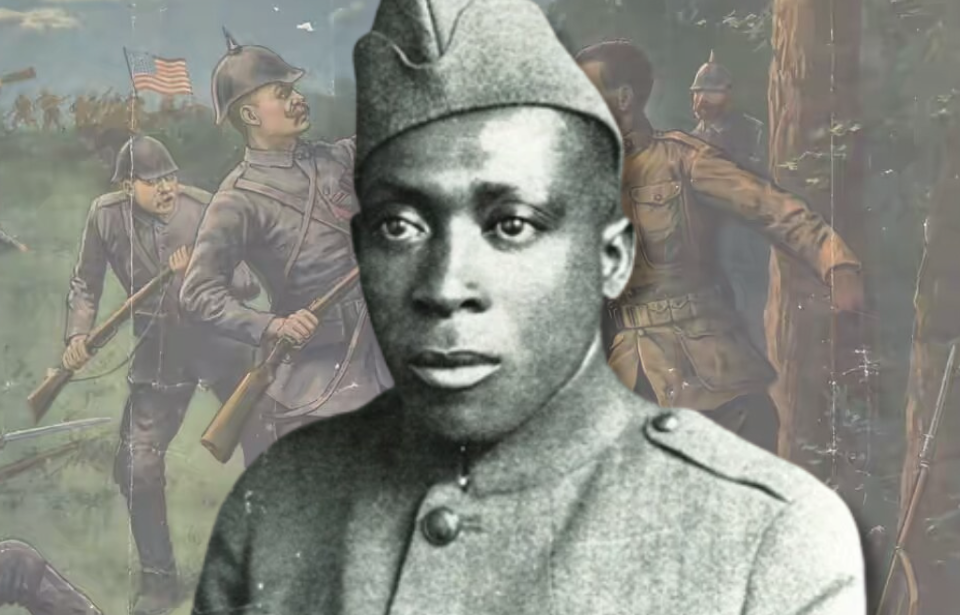Many heroic acts receive medals and public praise, but some are overlooked because of discrimination, politics, or issues of nationality. One striking example is William Henry Johnson, a member of the first African-American unit in the U.S. Army to see combat during World War I.
Known as Henry Johnson, he showed extraordinary bravery when he fought off enemy soldiers in hand-to-hand combat to protect a fellow soldier—refusing to back down even when he was badly outnumbered.
Henry Johnson enlisted in the New York National Guard
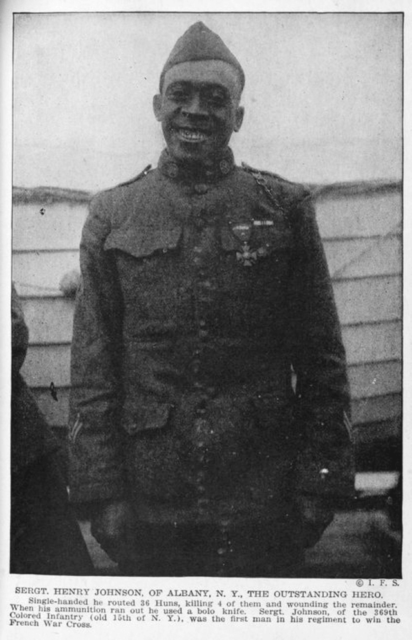
Henry Johnson’s early life is shrouded in mystery, even to himself. He believed he was born on July 15, 1892, in Winston-Salem, North Carolina, though this date remains unverified, as he provided different birth dates on official documents. During his teenage years, he worked as a railway porter, handling goods and luggage.
In mid-1917, Johnson joined the US Army after learning that the 15th Infantry Regiment of the New York National Guard, an all-Black unit, was seeking recruits. He and his comrades were sent to France, arriving in January 1918.
Assigned to the French Army’s 161st Division
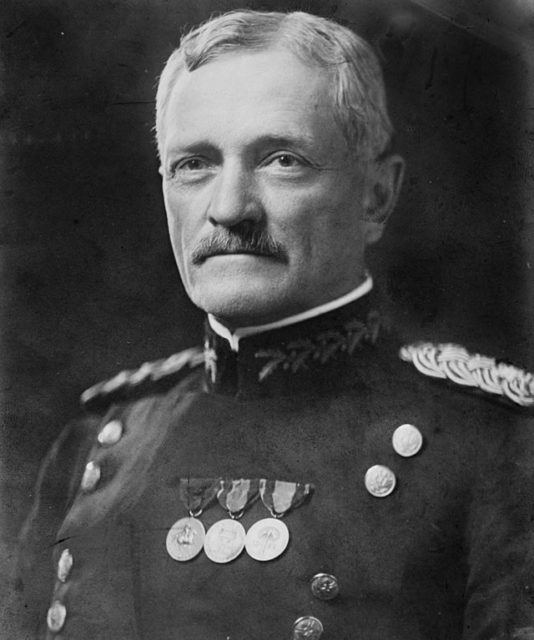
From the get-go, the eager regiment – at that point renamed the 369th Infantry Regiment and later becoming known as the “Harlem Hellfighters” – was relegated to menial tasks, such cleaning and moving goods. They were temporarily assigned to the 161st Division of the French Army by Gen. John J. Pershing. It’s believed the reason was that Pershing wanted to give African-American soldiers a chance to advance in leadership, which they couldn’t do in the segregated US Army.
The French Army had no such issue and gladly accepted the men as reinforcements, kitting them out with equipment. Johnson and his regiment were deployed to Outpost 20, near the Argonne Forest.
A nighttime raid was Henry Johnson’s chance to be a hero
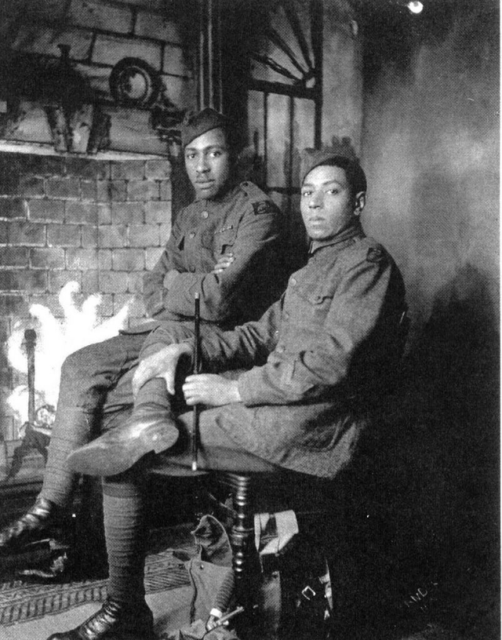
On the night of May 14, 1918, Henry Johnson had no idea he was about to face the battle that would define his legacy. He and fellow soldier Needham Roberts were stationed on guard duty at the edge of a forest, with their shift scheduled to end at midnight.
Two replacement troops arrived, but Johnson quickly realized they were too inexperienced to handle the post. Instead of clocking out, he chose to stay and back them up. Roberts returned to the trench to get some rest, leaving Johnson to keep watch. Not long after, he began hearing troubling sounds coming from the woods—the rustle of movement and the distinct click of wire cutters slicing through barbed wire in the dark.
German troops attack
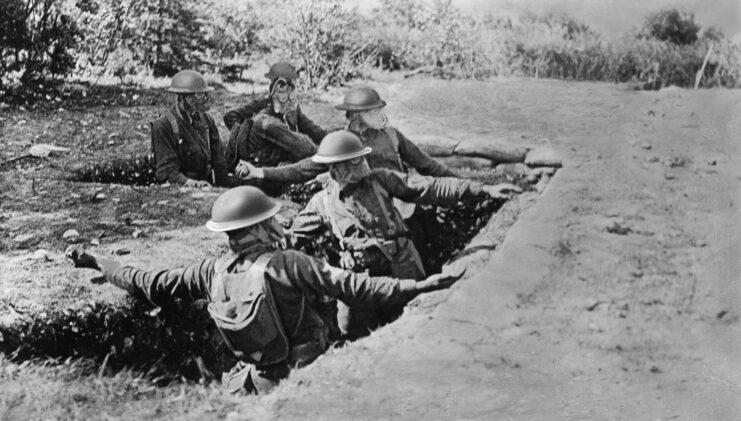
Once the grenades were gone, Johnson grabbed his rifle, continuing to fight despite wounds to his side, head, and hand. When the rifle jammed, he used it as a club to fend off the attackers.
In a desperate battle for survival, Johnson was struck heavily in the head. He collapsed beside his broken rifle but quickly got back up and drew his 14-inch bolo knife. With quick and powerful strikes, he killed one enemy with a single blow. Noticing the Germans trying to drag away the injured Roberts, he charged at them, wounding one in the ribs and forcing the others to retreat.
Johnson saved him and Roberts’ lives
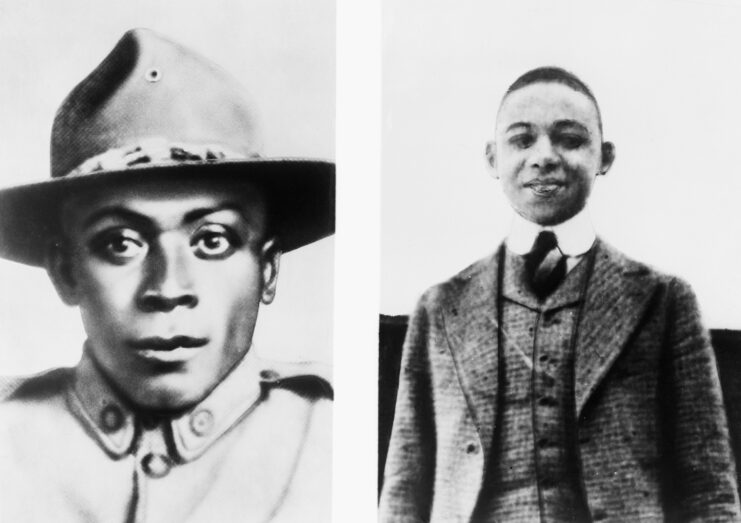
After an hour of fierce fighting, reinforcements showed up, forcing the Germans to pull back. Johnson’s extraordinary courage guaranteed that both he and Roberts made it through, with quick medical care provided for their injuries.
As the first light of dawn lit up the scene, the aftermath of the clash became visible: their wounds, their gear, and four fallen German soldiers. Johnson is said to have wounded another 25 to 30. His heroic stand quickly became the talk of the town, earning him a promotion to sergeant and the moniker “the Black Death.”
Awarded the Medal of Honor nearly a century later
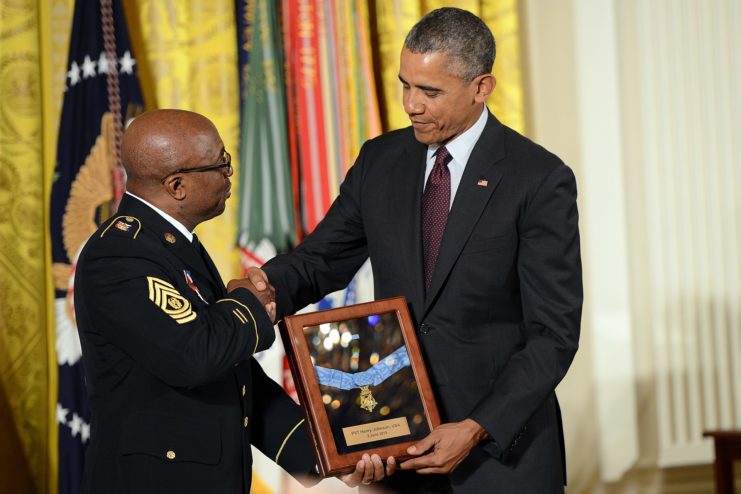
For his efforts, the French awarded Henry Johnson the Croix de Guerre, one of their highest awards, before sending him back to the US. At the end of the First World War, the Harlem Hellfighters participated in a victory parade, with Johnson upfront. Still, they were not allowed to parade alongside the White troops.
After such an ordeal, many soldiers would return home to a hero’s welcome, which Johnson did, to an extent, but it was a bittersweet achievement. Many publications quickly glossed over his race, or avoided mentioning it at all. He gave his all and returned to a country celebrating his efforts while still regarding him as an inferior citizen.
More from us: John Simpson Kirkpatrick: The ‘Man with the Donkey’ in Galipoli
The final years of Johnson’s life mirrored the first, slipping into obscurity after the war, while receiving disability payments from the US government. It remains unclear how much his injuries affected his later life and job opportunities. He passed away on July 1, 1929 of myocarditis. The full extent of his actions weren’t appreciated until he was posthumously awarded the Purple Heart in 1996 and the Medal of Honor by then-US President Barack Obama in 2015.
